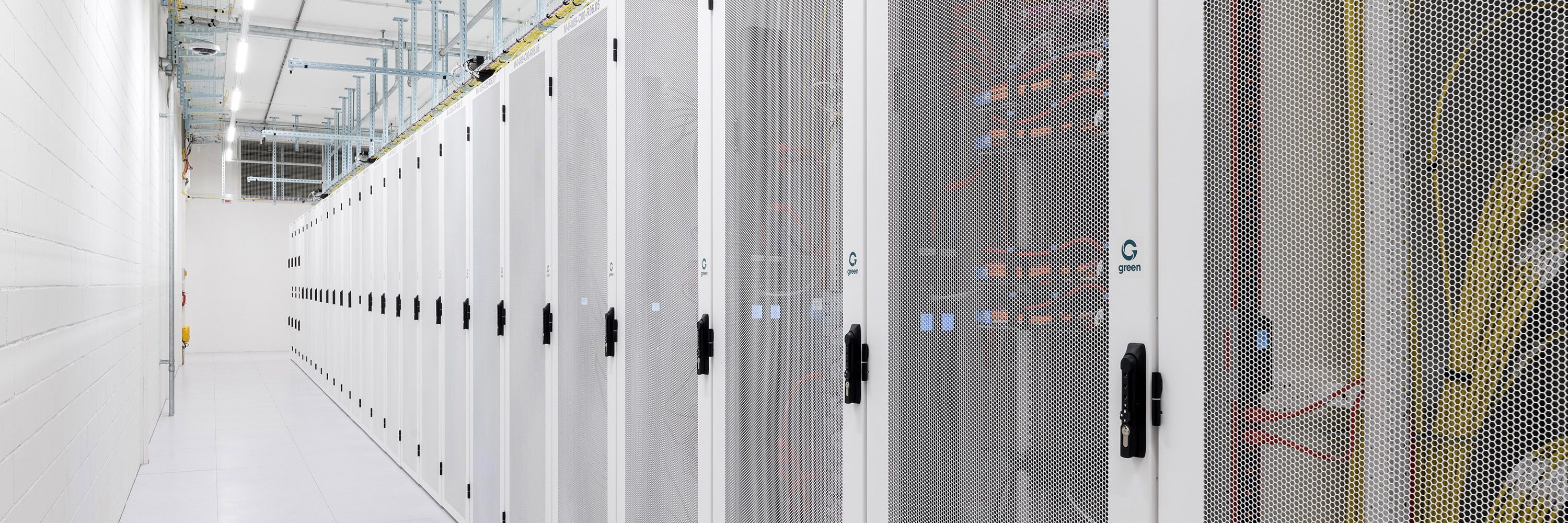
Think with sovereignty. Build with confidence. Lead with resilience.
Artificial intelligence is changing everything. The demands on physical infrastructure are growing so fast that only specialized data centers can handle them efficiently. At the same time, cloud is becoming more essential, and with it, the spotlight shifts to data sovereignty. The role of AI is no longer theoretical. How organizations manage it is becoming a defining factor in competitiveness and governance. Institutions of all types urgently need a clear sovereignty framework, along with concrete, adaptable actions.
Switzerland offers strong foundations
Few countries offer what Switzerland does: stability, legal certainty, location advantages and deep-rooted trust. These are the conditions where secure, future-proof digital infrastructure can thrive. In addition, Switzerland has a fast-growing data center landscape that blends local reliability with global connectivity. It’s the ideal base for hybrid IT architectures.
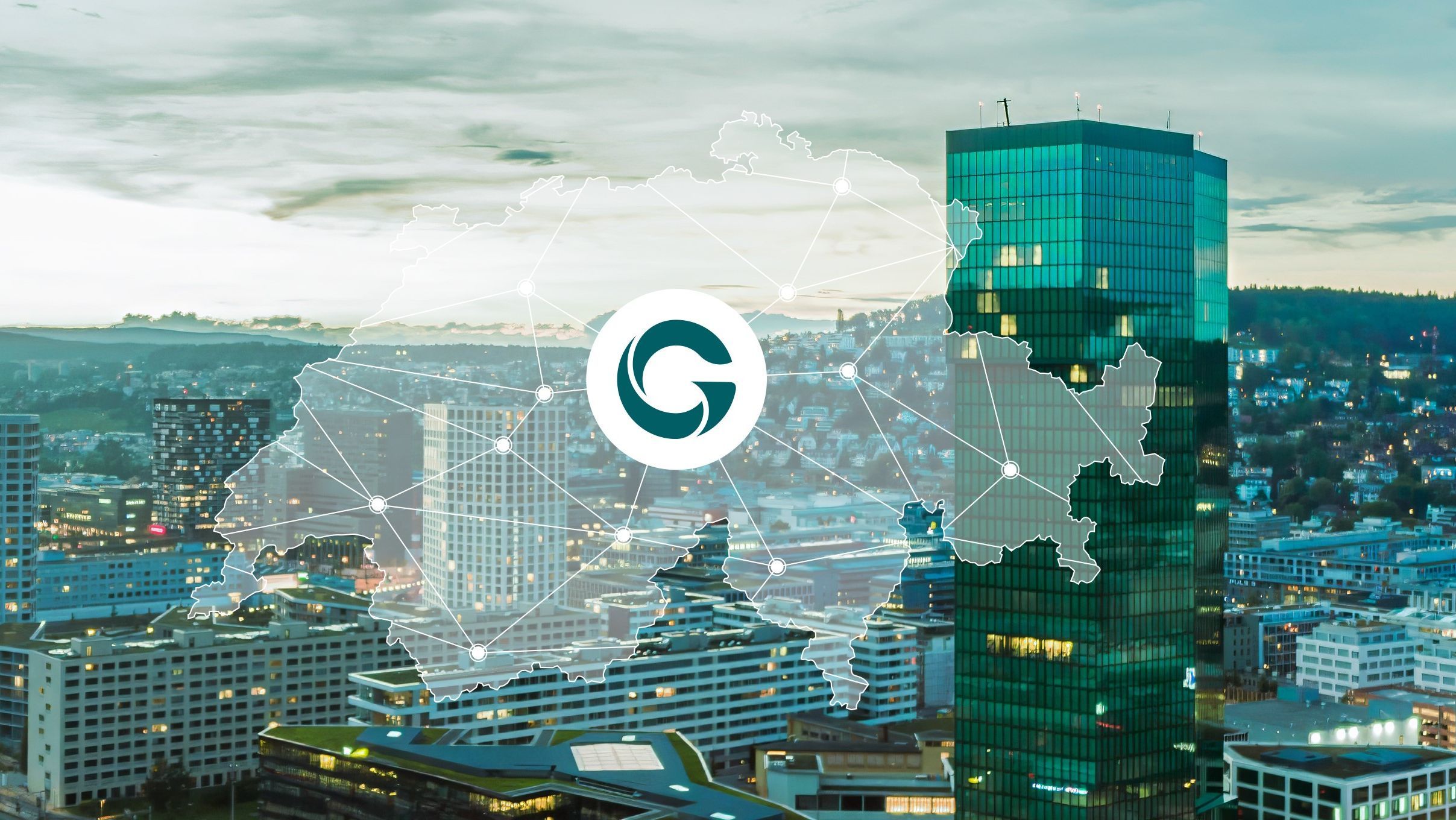
Sovereignty starts with clarity
Digital sovereignty is not a political slogan. It’s a practical necessity. You need to know exactly what data you have, where it’s stored, how it’s protected, who holds the keys and how access is managed. Switzerland’s revised data protection law raises the bar for transparency. This makes infrastructure a governance issue as much as a technical one.
Organizations that take sovereignty seriously build systems that can provide evidence at any time, to customers, regulators and stakeholders. True sovereignty also requires documented protections against every form of digital threat, from DDoS attacks to ransomware to phishing.
Security and trust go hand in hand
In both the public and private sectors, security infrastructure has become mission-critical. With cyberattacks, espionage and geopolitical tensions on the rise, trust is no longer a given. Protecting it requires greater investment and more robust frameworks.
Green’s high-performance data centers are designed for exactly this purpose. Located in Switzerland, they offer certified processes, physical security, independent power and maximum redundancy. They also provide security, capacity and sustainability levels far beyond what’s possible with in-house data centers, often at a lower cost.
Sovereignty and sustainability go together
Digital sovereignty is what makes long-term innovation possible. But achieving it takes effort. Internally, it requires a mindset of knowledge, awareness and action. Externally, it means meeting growing expectations around sustainability.
Today, regulators, investors and business leaders demand transparency around energy use and climate impact. One number, like PUE, is no longer enough. A holistic approach is needed, one that maps ESG targets and emissions clearly and credibly. Those who lead with transparency earn trust and market advantage.
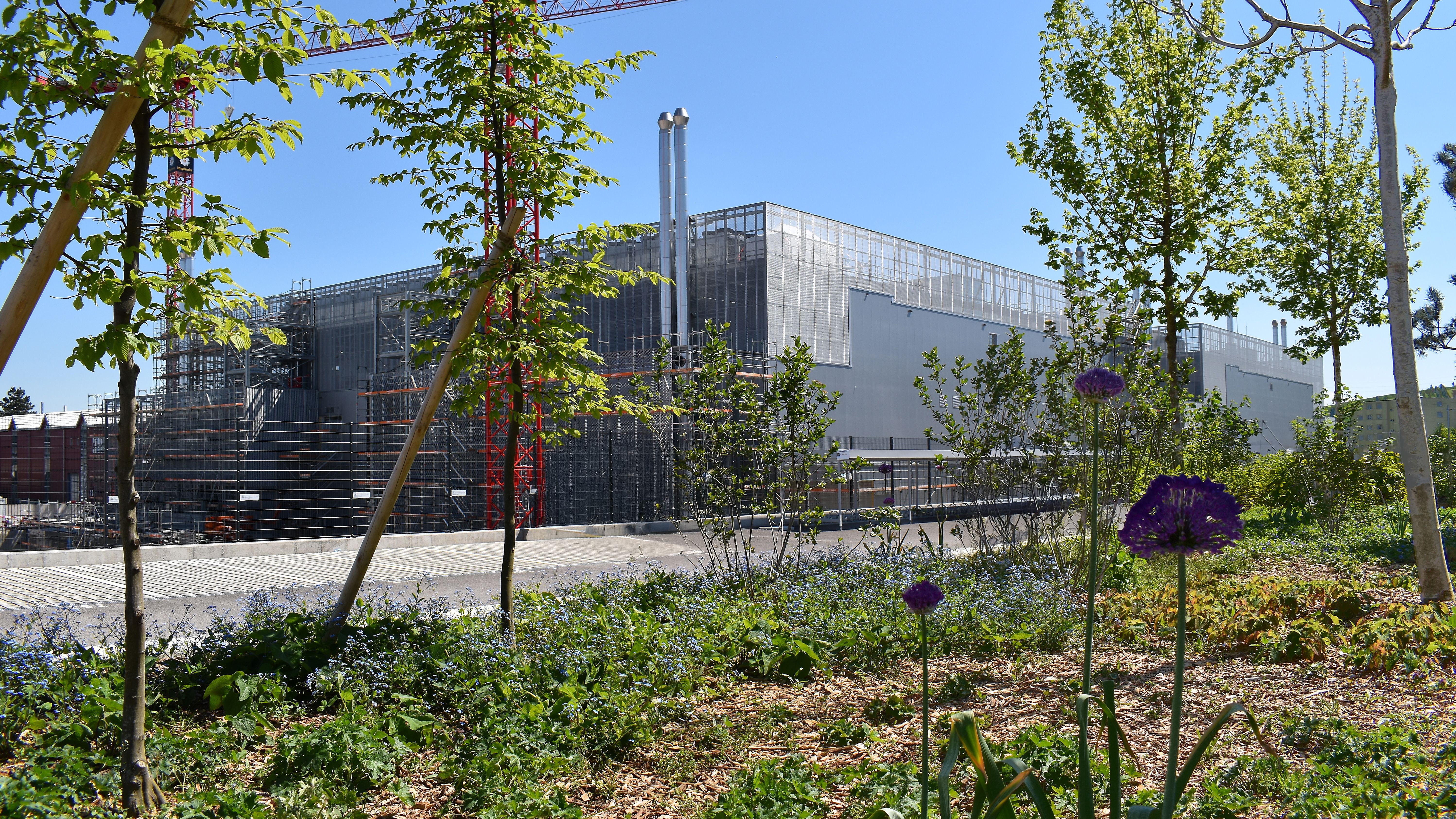
AI as a sustainability challenge
True independence is hard to achieve. AI is not only transforming applications, it is reshaping infrastructure. Models, simulations and training data require enormous amounts of compute and storage, which massively increases energy demand. AI racks also generate heat levels that push traditional cooling systems to their limits.
Turning heat into opportunity
Studies show that data centers will account for a growing share of global electricity use in the coming years. Energy becomes a strategic factor and creates new dependencies. Cooling, heat reuse and water consumption must be reconsidered.
Liquid cooling and heat recovery are becoming essential. Green’s data centers already feed waste heat into local heating networks, helping warm entire neighborhoods. The smarter these systems are designed, the smaller the environmental impact of digital infrastructure.
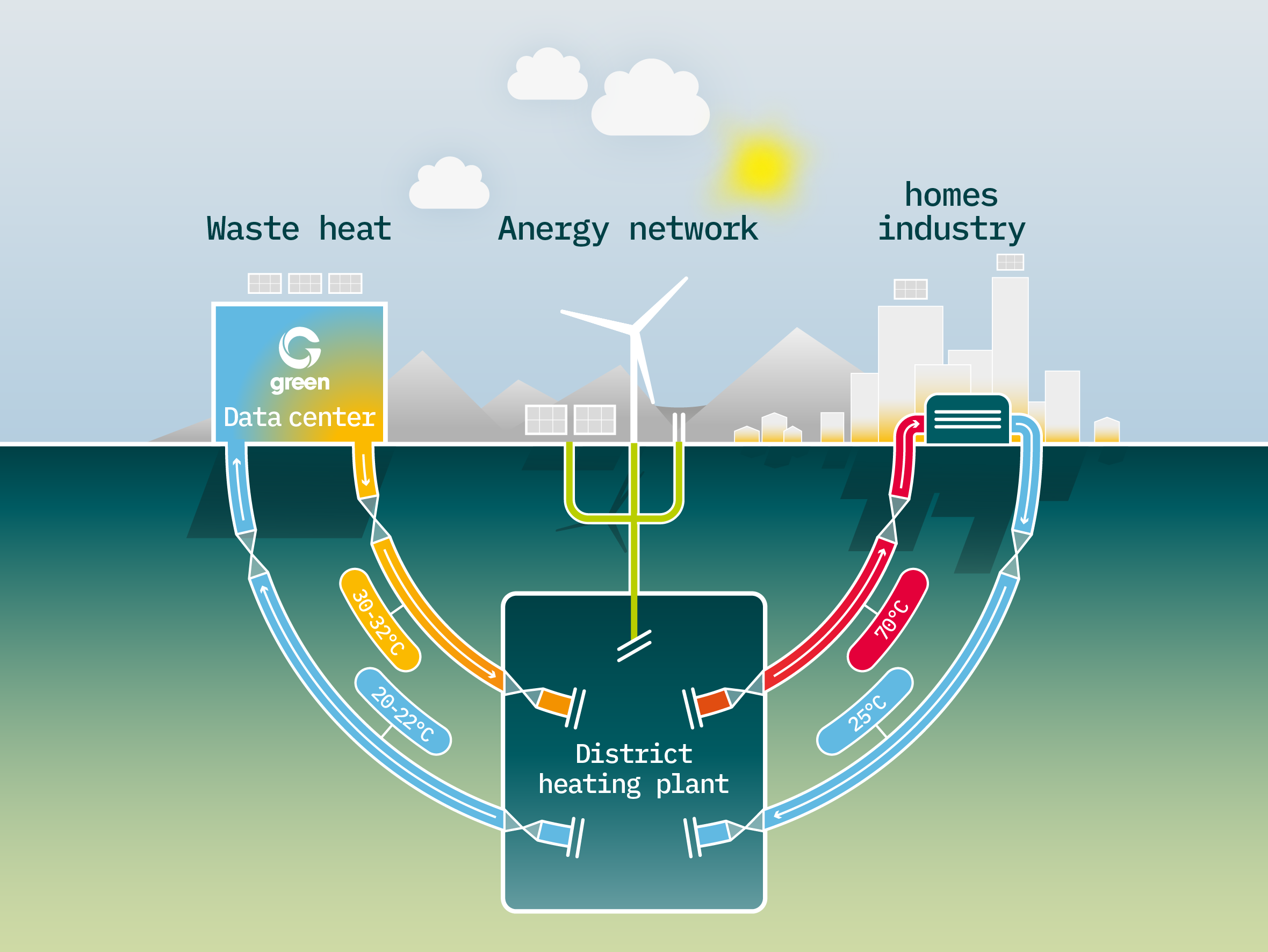
Data strategies that enable sovereignty
The idea of data sovereignty is compelling, but implementing it is demanding. The first step is deep knowledge of your data, internal and external. Only then can organizations decide which technologies are appropriate, permitted and sustainable for specific data types.
Market trends confirm it: multi-cloud and hybrid strategies are becoming the norm. Companies use global providers for scalability and innovation while safeguarding critical data locally. Swiss data centers provide private cloud, dedicated racks or entire secure server rooms, tailored to each business model.
Switzerland’s modern data centers form the digital backbone of its economy. The largest among them are ready to handle any mix of storage, applications and services, whether traditional, hybrid or cloud-native. Many are already designed for the capacity and cooling needs of tomorrow’s AI systems.
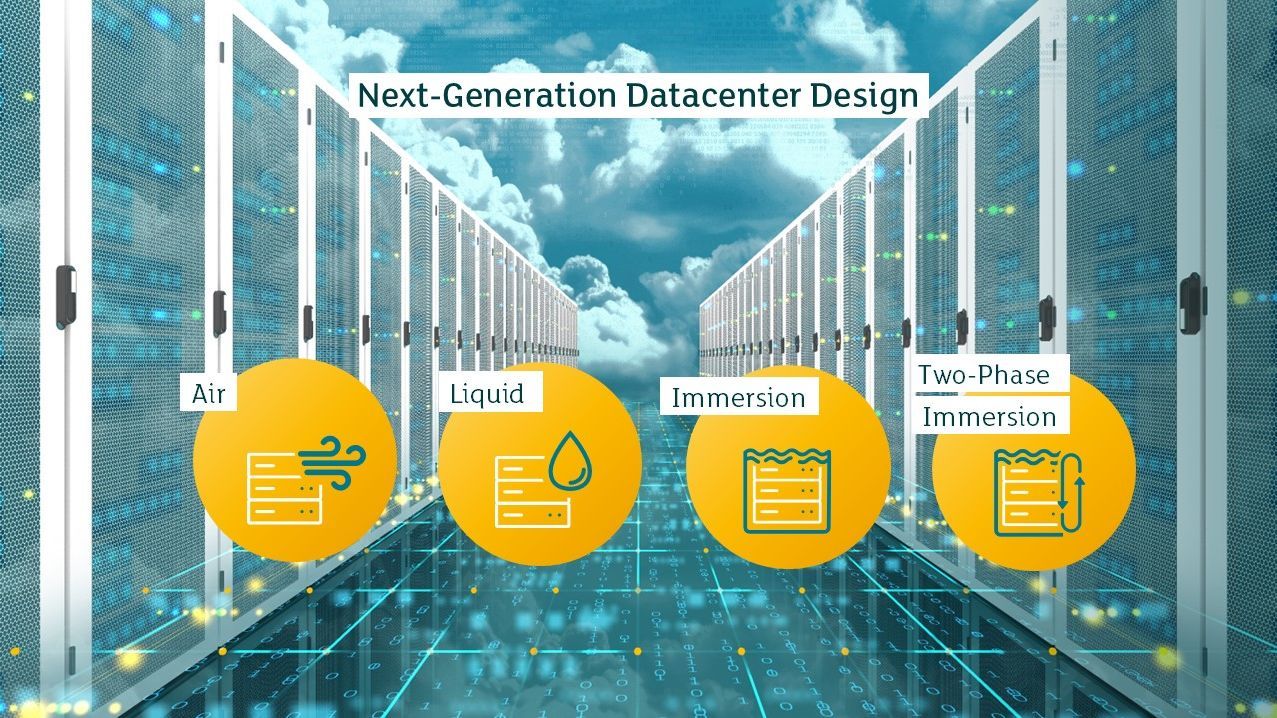
Time to act without panic
There is no reason to wait. Now is the moment to explore what digital sovereignty means for your organization. Building your own sovereignty framework and IT infrastructure strategy will define your ability to grow, adapt and protect your future. And this is not just a business issue. As AI and digitalization reshape society, individuals and households will also face new decisions around how their data is used and secured.
Digital resilience starts with sovereignty
In an AI-driven world, digital resilience becomes a competitive advantage. It creates calm in a landscape of rapid change. It connects efficiency with responsibility and sets the stage for long-term growth.
Digital sovereignty is the foundation for that resilience. Green’s Swiss data center services support this with infrastructure that is built for clarity, performance and peace of mind.
Even reflecting on digital sovereignty can shine a light on your IT future. And that makes it more than relevant. It makes it essential.

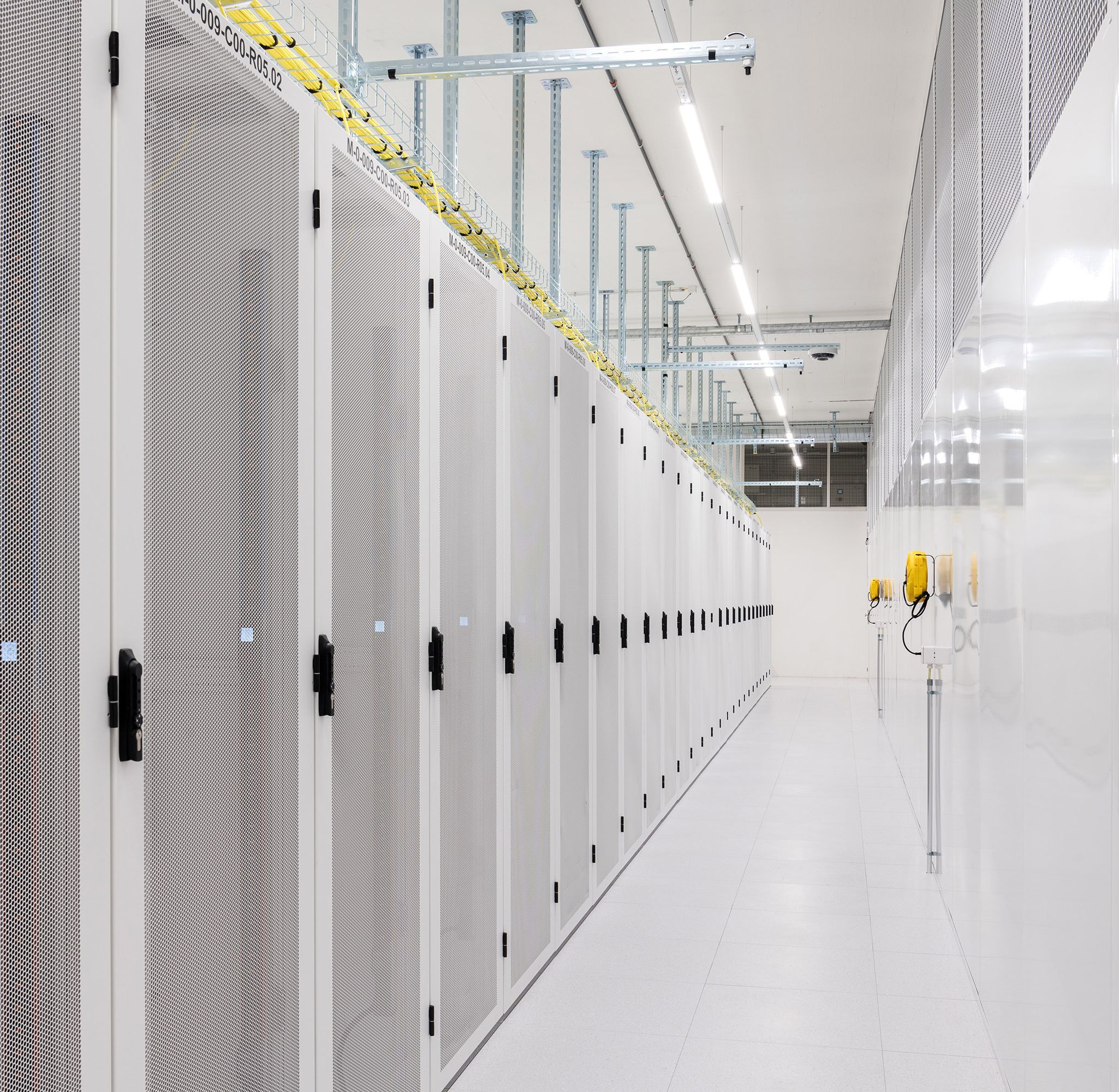
![[Translate to Englisch:] [Translate to Englisch:]](/fileadmin/_processed_/5/f/csm_AdobeStock_628395867_17f7e90faf.jpeg)
